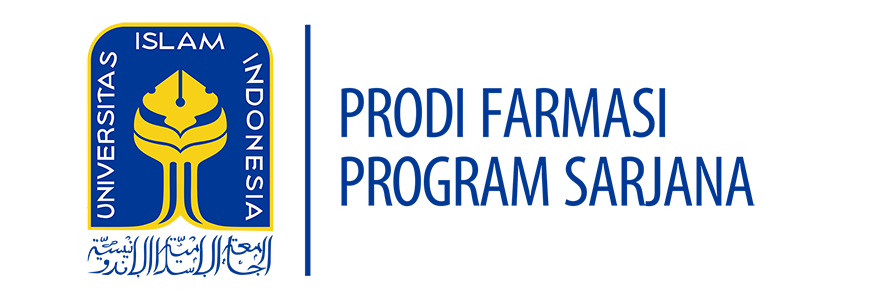| Module Name |
Applied Pharmacokinetics |
| Module level, if applicable |
3rd year |
| Code, if applicable |
SFA-654 |
| Semester (s) in which the module is taught |
6th semester |
| Person responsible for the module |
Dr. Farida Hayati, M.Si., Apt. |
| Lecturer(s) |
Dimas Adhi Pradana, M.Sc., Apt. |
| Language |
English-Indonesia |
| Relation to curriculum |
Compulsory course |
| Types of teaching and learning |
Class size |
Attendance time (hours per week per semester) |
Forms of active participation |
Workload |
Hours |
| Lecture |
50 |
1.5 |
Discussion |
Lectures: 1 (hour)x14 meeting |
14 |
| Preparation and follow up : 2.5(hours) x 14 (self-learning) |
35 |
| Preparation and follow up: 2.5(hours) x14(group-learning) |
35 |
| Total workload |
84 hours |
| ECTS |
3 ECTS |
| Credit points |
2 CU |
| Requirements according to examination regulations |
Minimum attendance at lectures is 75%. Final score is evaluated based on assignment and quiz (55%), mid semester exam (20%), and end semester exam (25%). |
| Recommended prerequisites |
Fundamentals of Pharmacokinetics |
| Related course |
– |
| Module objectives/intended learning |
After completing the course students are able to:
- Identify pharmacokinetic applications in various fields of pharmaceuticals
- Describe and calculate the pharmacokinetic parameters of intravenous infusion
- Calculate and determine pharmacokinetic parameters on repeated dosing
- Determine dose adjustment in cases of organ function abnormalities
- Apply pharmacokinetics to special population conditions (pregnant women, geriatrics, paediatrics, genetic disorders)
- Apply the principles of honesty and discipline in the process of Applied Pharmacokinetics
- Apply pharmacokinetic calculation results for clinical problem solving
|
| Content–silabus (deskripsi mata kuliah) |
Applied Pharmacokinetics courses in the 2017 Pharmacy Study Program Curriculum are given to students of 6th semester with a weight of 2 credits. This course is a compulsory course that is pursued with prerequisites for Basic Pharmacokinetics courses. This course aims to support graduate learning achievements in the form of the ability to be professional and ethical as well as knowledge about the basic science of pharmaceuticals. The main purpose of this course is that students are able to apply pharmacokinetics in pharmaceutical services |
| Study and examination requirements and forms of examination |
Mid-term, final term, assignment, quiz |
| Media employed |
Text books, slides (power points), video |
| Reading lists |
- Hakim, L., 2017, Clinical Pharmacokinetics, Bursa Ilmu
- Shargel, L and Yu, ABC, 2005, Applied Biopharmaceutics and Pharmacokinetics, 5th Appleton & Lane, Connecticut
- Winter, M.E., 2018, Basic Clinical Pharmacokinetics, Lippincot Williams and Wilkins
|
